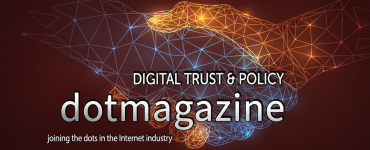The 2021 German parliament’s election is coming up in autumn: With this in sight, we talk in an interview with Sven Ursinus, Director of Government Affairs at Huawei Germany. Here it’s all about transformation processes of industry and SMEs, the current digital policy in Germany and the digital agenda of the future German federal government.
Mr Ursinus, from your point of view, how is Germany positioned as a digital location today in international comparison – where do you see the challenges and what are the future potentials?
Ursinus: We are in the middle of the transformation process of industry and SMEs. If we succeed in this, Germany’s future will also look bright. In addition, I consider not only the digitalisation of already successful technologies, but also the development of new innovations and business models to be very important. Only those who are technological leaders in at least a few important areas can play internationally on an equal footing, and also help shape policies accordingly. Where we can still improve is in the area of startups: The startup climate is positive, the ecosystem is very vital, but we definitely will be needing more venture capital so that our unicorns don’t tend to just gallop off across the Atlantic quite so often.
How do you rate the digital policy record of the current German federal government?
Ursinus: In my view, many challenges have been well identified by the German federal government. Be it education, broadband expansion, administrative digitalisation or the need to become even stronger in the manufacturing of semi-conductors – I also believe that the key to a successful future lies in these areas. The approach of tackling many of these challenges at European level rather than nationally is the right one for me. Of course, not all ideas and strategies were implemented with the speed that is appropriate for Germany as a business location, and we can definitely speed up even more.
Which digital policy topics do you think the next German federal government should put at the top of its digital agenda?
Ursinus: First and foremost, there should be three topics: education, education and education: Only if we succeed in providing the upcoming generations with the appropriate digital skills can we ensure that Germany will still have the chance to be a digital and vital business location in 30 years’ time. In the following ranks, what I also see as important is the administrative digitalisation, a topic where the general population could quickly benefit from digitalisation. In addition, we will be investing in the technologies that are just emerging on the hype cycle and where we still have a real opportunity for technological leadership.
Thank you very much for the interview!
You can find out more about digital education at the second Internet Policy Party Check of eco, taking place (in the German language) on 24 August 2021.




